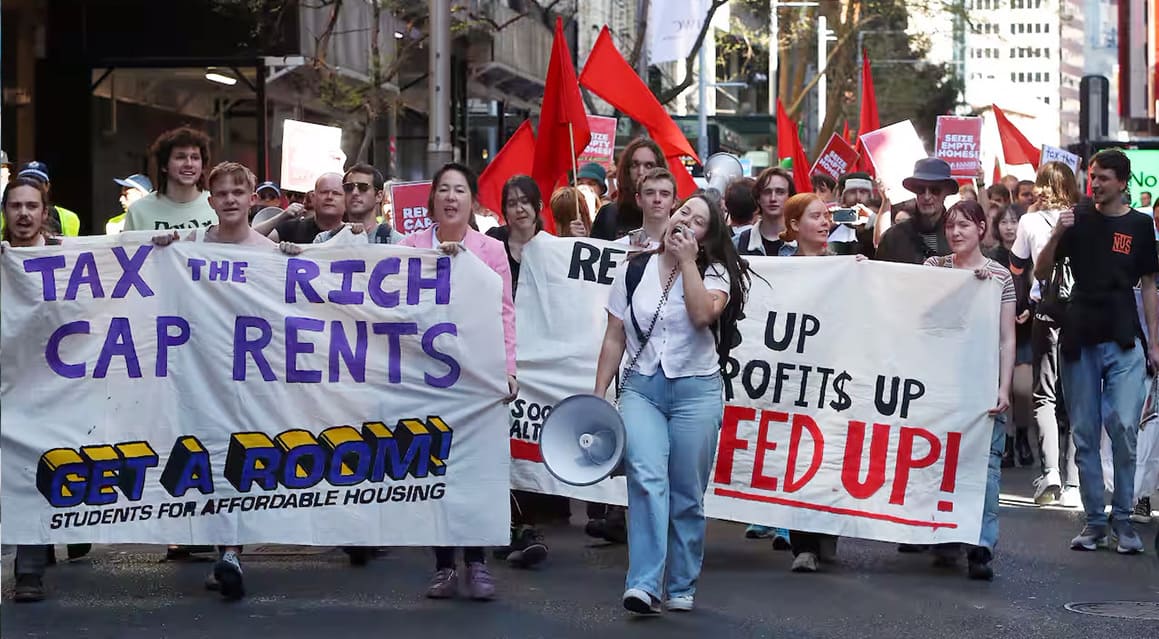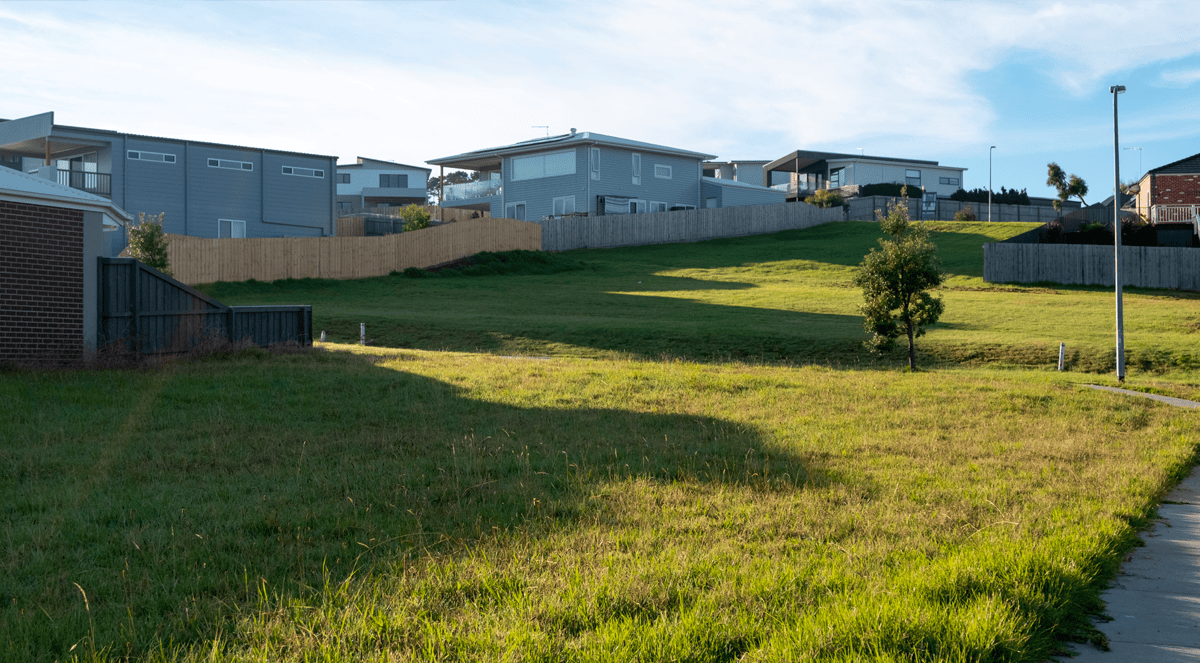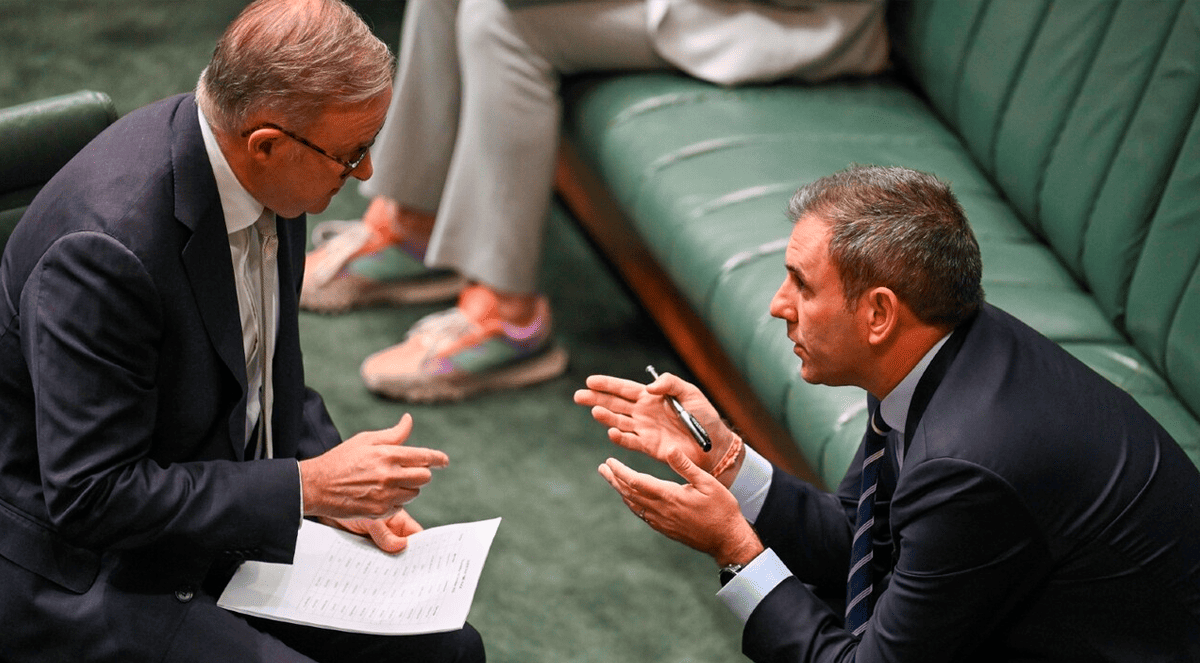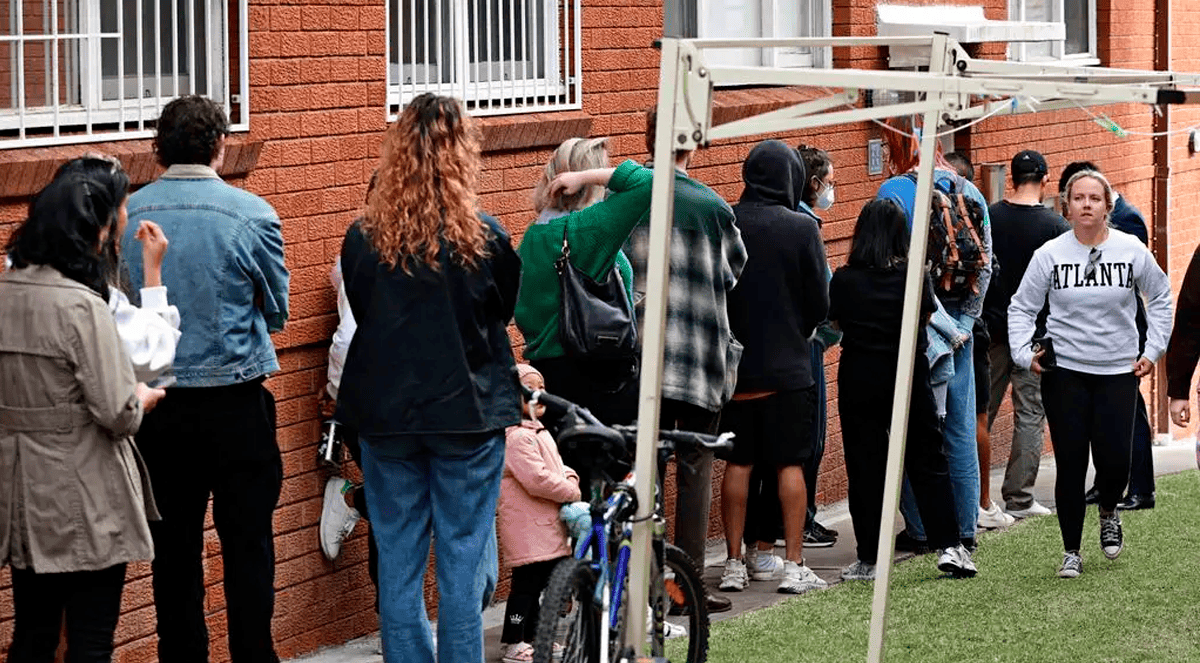Features > Property News & Insights > Market updates
Ending negative gearing won't fix housing crisis, warns finance expert

Image from nationalseniors.com
KEY POINTS
- One of Australia’s most trusted financial experts, Noel Whittaker, says ending negative gearing for investment properties would not solve the housing crisis
- The wealth columnist warns that creating uncertainty about property taxation may lead many landlords to sell, driving rents higher
- Mr Whittaker also rejects suggestions negative gearing is a “huge tax loophole”
For decades, Australians have looked to Noel Whittaker for financial advice that’s easy to understand.
He may be in his mid-80s, but the long-time newspaper columnist and author shows no signs of slowing down.
Whittaker still dishes out advice weekly in his columns in the Nine newspapers and the West Australian, answering letters from readers.
Over the years, Noel Whittaker has penned more than 20 books, including the landmark “Making Money Made Simple”, now in its 25th edition.
What’s really valuable about Whittaker’s advice is that it comes from a lifetime of experience.
He’s seen it all - stock market crashes, bull markets, recessions, mining booms and global financial crises.
So when Noel Whittaker weighs into a policy debate, it’s worth paying attention.
The negative gearing debate
The Federal Treasury defines negative gearing as “a situation where expenses associated with an asset (including interest expenses) are greater than the income earned from the asset (for an investment property, this would be rent).
“Individuals who are negatively geared can deduct their loss against other income, such as salary and wages.”
According to the Australian Financial Review, about 1.1 million property investors recorded a rental loss in 2023, collecting tax benefits worth $2.7 billion.
Recently, Noel Whittaker used his weekly column to forcefully argue that winding back negative gearing would do little to solve the housing crisis.
His intervention followed renewed speculation that the Albanese Labor government might be considering changes to tax rules for property investors.
With the Coalition opposed, the government has turned to the Greens to help pass one of its signature housing bills through parliament - the legislation setting up Labor’s “Help to Buy” program, which would see the government take shared equity in homes for lower-income Australians.
However, the Greens have delayed the legislation, demanding changes to negative gearing and the capital gains tax discount in return.
“These unfair tax handouts are driving the rental and housing crisis,” says Greens leader Adam Bandt.
“They help wealthy property investors buying their seventh property and hurt renters trying to buy their first home.
“Changing these unfair tax handouts is the kind of reform that could start to fix the housing crisis and see Labor’s weak housing legislation pass the Senate.”
Noel Whittaker is unconvinced.
“These claims don’t hold water,” he says.
“Negative gearing is not a huge tax loophole.”
Whittaker points out that most property investors fall into the 30% tax bracket, meaning the government covers 30% of any loss while the investor bears 70%.
“That’s far from a tax rort.
“Plus, many of these losses are due to non-cash deductions like depreciation, which are recouped when the property is sold.”

Image from Getty / Lisa Maree Williams
A history lesson
One of the main arguments by proponents of change is that “it’s been done before”.
They refer to the period in the mid-1980s when then Treasurer Paul Keating ended negative gearing, only to reinstate it 2 years later.
Economists still debate the effects of this period on rents, but Noel Whittaker warns that the expected boost to government coffers from ending negative gearing might be smaller than many think.
“There’s been much talk about what happened when Paul Keating changed the rules back in 1985,” he says, “but people seem to forget that interest was still deductible – investors could “quarantine” their rental property losses.
“While they couldn’t offset these losses against other income to reduce their tax bill in the current year, they could carry forward the losses and apply them to future rental income or capital gains from the sale of the property.
“So the losses weren’t completely disallowed: they were deferred.”
Implementing change
Noel Whittaker says it’s crucial to consider how any changes to negative gearing would be introduced.
“No government heading into an election would eliminate tax deductions for existing rental properties,” he says.
“New rules would need to be grandfathered, which would discourage existing investors from selling and deter potential investors from buying.
“It’s a zero-sum game.
“The real cause of the housing unaffordability crisis is unchecked immigration, which is fuelling demand.”
Noel Whittaker also counsels against causing more uncertainty for property investors.
“Creating uncertainty about property taxation may make landlords nervous — if large numbers sell their properties to owner-occupiers, rents will go up for the remainder.
“If not, landlords will try to cut losses, and rents will go up,” he says.
Governments listen
The good news is that the Albanese government appears to be listening to sensible and experienced voices like Noel Whittaker’s.
At the end of October, after about six weeks of uncertainty, Treasurer Jim Chalmers finally moved to kill off speculation that he was considering changes to tax concessions for investment properties.
“One of the reasons why we’re not going down the path of changing the negative gearing arrangements, abolishing negative gearing or abolishing the capital gains tax discount, is because we haven’t been convinced that that would have positive consequences for supply,” Dr Chalmers told ABC News.
“There aren’t enough homes for Australians to live in.
“The housing pipeline is not anything near what we need it to be.”
Noel Whittaker agrees.
“As long as demand outstrips supply, housing will remain expensive,” he says.
Stay Up to Date
with the Latest Australian Property News, Insights & Education.




.png?width=292&height=292&name=Copy%20Link%20(1).png)
 SIGN UP FOR FREE NEWSLETTER
SIGN UP FOR FREE NEWSLETTER







%20Scott%20Kuru%20DPU%20145.jpg?width=1920&height=1080&name=Senate%20Inquiry%20Forced%20the%20RBA%20to%20Admit%20the%20Housing%20Crisis%20Will%20Never%20Be%20Fixed%20(It%20Was%20All%20a%20Lie)%20Scott%20Kuru%20DPU%20145.jpg)



%20Scott%20Kuru%20DPU%20141.jpg?width=1920&height=1080&name=The%20Senate%20Just%20Exposed%20Australias%20Biggest%20$80%20Billion%20Housing%20Fraud%20(Inquiry%20Launched)%20Scott%20Kuru%20DPU%20141.jpg)




%20Scott%20Kuru%20DPU136.jpg?width=1920&height=1080&name=Aussies%20Just%20Got%20Hit%20With%20Double%20Taxes%20on%20Everything%20(This%20Has%20Gone%20Too%20Far)%20Scott%20Kuru%20DPU136.jpg)


%20Scott%20Kuru%20DPU%20133.jpg?width=1920&height=1080&name=JUST%20IN%20Something%20Major%20Just%20Flipped%20Australia%E2%80%99s%20Property%20Market%20for%202026%20(No%20One%20Saw%20This%20Coming)%20Scott%20Kuru%20DPU%20133.jpg)


.jpg?width=1920&height=1080&name=Rental%20Prices%20At%20Record%20Highs%20And%20Vacancy%20Rates%20At%20All%20Time%20Lows%20(New%20Data%20Reveals).jpg)
%20%20DPU%20EP%2014.jpg?width=1920&height=1080&name=Investors%20Shutting%20Out%20First%20Home%20Buyers%20(Investors%20At%20Record%20Highs)%20%20DPU%20EP%2014.jpg)

.jpg?width=1920&height=1080&name=Darwins%20Property%20Market%20Boom%20or%20Dangerous%20Gamble%20(REVEALED).jpg)

.jpg?width=1920&height=1080&name=The%20RBA%E2%80%99s%20Rate%20Cut%20Could%20Explode%20House%20Prices%20(Here%E2%80%99s%20Why).jpg)








.jpg?width=1920&height=1080&name=Warning%2c%20You%20Might%20Be%20Facing%20Higher%20Taxes%20Soon%20(1).jpg)




.png?width=1920&height=1080&name=Rate%20Drops%20Signal%20BIGGEST%20Property%20Boom%20in%20DECADES%20(1).png)

.jpg?width=1920&height=1080&name=Labor%20vs%20Liberal%20These%20Housing%20Policies%20Could%20Change%20the%20Property%20Market%20Forever%20(1).jpg)
.jpg?width=1920&height=1080&name=QLD%20Slashes%20Stamp%20Duty%20Big%20News%20for%20Investors%20%26%20Home%20Buyers%20(1).jpg)
.jpg?width=1920&height=1080&name=Trump%20Just%20Slapped%20Tariffs%20%E2%80%93%20Here%E2%80%99s%20What%20It%20Means%20for%20Australia%20(1).jpg)
.jpg?width=1920&height=1080&name=Federal%20Budget%202025%20More%20Debt%2c%20No%20Housing%20%E2%80%93%20Here%E2%80%99s%20What%20You%20Need%20to%20Know%20(1).jpg)
.jpg?width=1920&height=1080&name=Australias%20Housing%20Crisis%20is%20about%20to%20get%20MUCH%20Worse%20(New%20Data%20Warns).jpg)
%20(1).jpg?width=1920&height=1080&name=Australias%20RENTAL%20CRISIS%20Hits%20ROCK%20BOTTOM!%20(2025%20Update)%20(1).jpg)
%20(1).png?width=1920&height=1080&name=Is%20Adelaide%20Still%20a%20Good%20Property%20Investment%20(2025%20UPDATE)%20(1).png)
.jpg?width=1920&height=1080&name=RBA%20Shocks%20with%20Rate%20Cuts!%20What%E2%80%99s%20Next%20for%20Property%20Investors%20(1).jpg)
%20(1).jpg?width=1920&height=1080&name=I%20Predict%20The%20Feb%20Rate%20Cut%20(My%20Price%20Growth%20Prediction)%20(1).jpg)
.png?width=1920&height=1080&name=Why%20Property%20Prices%20Will%20Rise%20in%202025%20Market%20Predictions%20(1).png)
.jpg?width=1920&height=1080&name=Why%20Investors%20Are%20Choosing%20Apartments%20Over%20Houses%202%20(1).jpg)
.jpg?width=1920&height=1080&name=Why%20Rate%20Cuts%20Will%20Trigger%20A%20Property%20Boom%20(1).jpg)
.jpg?width=1920&height=1080&name=Retire%20On%202Million%20With%20One%20Property%20(Using%20SMSF).jpg)
.jpg?width=1920&height=1080&name=4%20Reasons%20Why%20You%20Should%20Invest%20in%20Melbourne%20Now%20(1).jpg)
%20(1).jpg?width=1920&height=1080&name=Old%20Property%20vs%20New%20Property%20(Facts%20and%20Figures%20Revealed)%20(1).jpg)
%20(1).jpg?width=1920&height=1080&name=Will%20The%20New%20QLD%20Govt%20Create%20a%20Property%20Boom%20or%20Bust%20(My%20Prediction)%20(1).jpg)
%20Scott%20Kuru%20(1).jpg?width=1920&height=1080&name=Inflation%20Hits%20Three-Year%20Low%20(Will%20RBA%20Cut%20Rates%20Soon)%20Scott%20Kuru%20(1).jpg)
.jpg?width=1920&height=1080&name=How%20to%20Buy%20Investment%20Property%20Through%20SMSF_%20The%20Ultimate%20Guide%20(1).jpg)
.jpg?width=1920&height=1080&name=Victoria%20Slashes%20Stamp%20Duty%20Melbourne%20Set%20to%20Boom%20Scott%20Kuru%20(1).jpg)
.png?width=1571&height=861&name=Are%20Foreign%20Buyers%20Really%20Driving%20Up%20Australian%20Property%20Prices%20(1).png)
.jpg?width=1920&height=1080&name=The%20Single%20Factor%20That%20Predicts%20Property%20Growth%20Regions%20(1).jpg)
%20Scott%20Kuru%20(1).jpg?width=1920&height=1080&name=My%20Prediction%20On%20Rates%20%26%20Negative%20Gearing%20(Market%20Crash)%20Scott%20Kuru%20(1).jpg)

-1.png?width=1920&height=1080&name=Major%20Banks%20Cut%20Rates%20Will%20RBA%20Follow%20Suit%20(Sept%20Rate%20Update)-1.png)
%20Scott%20Kuru-1.png?width=1920&height=1080&name=Rate%20Cut%20Coming%20What%20New%20Zealands%20Move%20Means%20for%20Australia%20(Sept%20Prediction)%20Scott%20Kuru-1.png)
%20(1).jpg?width=1920&height=1080&name=Buy%20when%20the%20interest%20rates%20are%20high!%20(Why%20you%20must%20buy%20now!)%20(1).jpg)
.jpg?width=1920&height=1080&name=Carms_Revised%20Taxes%20Due%20Aug%209%20YT%20Thumbnail02%20(1).jpg)
.jpg?width=1920&height=1080&name=Carms_Too%20Little%20Too%20Late%20Aug%207%20YT%20Thumbnail01%20(1).jpg)









.jpg?width=1920&height=1080&name=Carms_Rate%20Drop%20In%20July%20Jun%2010%20YT%20Thumbnail02%20(1).jpg)
.jpg?width=1920&height=1080&name=Carms_Own%20a%20Property%20V6%20Jun%205_YT%20Thumbnail%20(1).jpg)









.png?width=1920&height=1080&name=Artboard%201%20(3).png)






.jpg?width=1920&height=1080&name=YT%20thumbnail%20%20(1).jpg)

